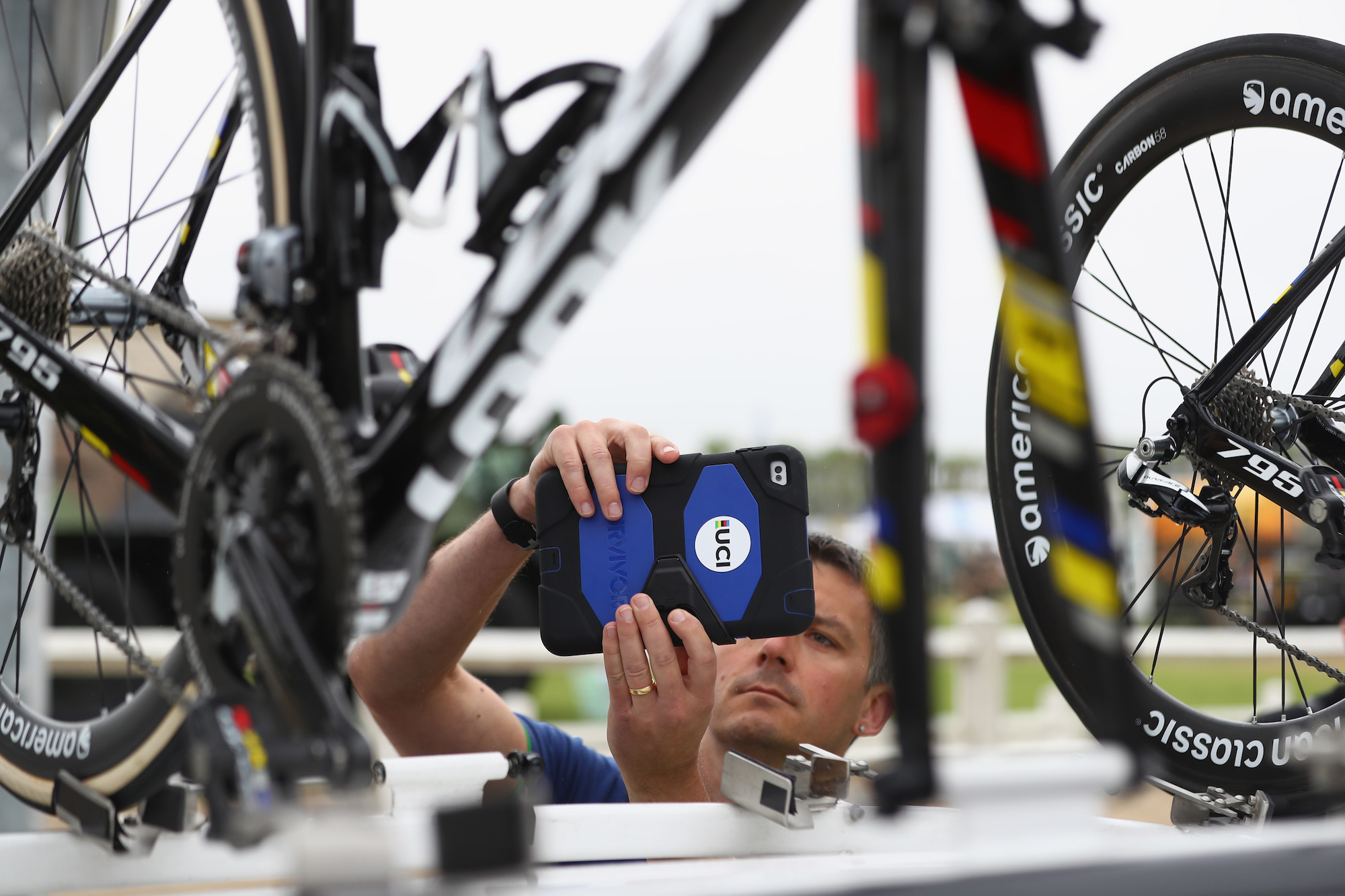Case closed after no hidden motors found in peloton after two years
French authorities announce they ceased investigating mechanical doping at the start of 2020

UCI check for hidden motors at the 2016 Tour de France (Getty)
French police have closed their case into hidden motors within the peloton, having found no evidence of mechanical doping during the two-year investigation.
Femke Van den Driessche had been caught at the World Cyclocross Championships in 2016, the first high-level rider to ever test positive for having a bike with an engine in it, while a 42-year-old amateur was then caught in a smaller race in October 2017.
French prosecutors subsequently announced they would look into an alleged conspiracy involving "very notable riders" said to be using hidden motors, and investigating "links between international teams, private companies and cycling’s highest authorities".
However, the National Financial Prosecutor's Office (PNF) has now closed the case, report l'Équipe, while the UCI has also concluded its partnership with the French Atomic Energy Commission (CEA), who had been developing miniature thermal scanners to detect motors.
>>> Switzerland 2020 World Championships given green light after coronavirus uncertainty
These devices would have been fitted to each individual bike in a race, announced in 2018 as part of a range of new methods to combat mechanical doping by UCI President David Lappartient, yet the cost proved too expensive for the cycling governing body, and they will instead continue to use tablets to scan bikes.
The miniature devices had apparently caused a stir at the 2018 Tour de France after they detected a burst of energy from a rider's pedals during the race, but it was a false alarm after a mechanical defect was the cause of the heat emanation that had been picked up.
The latest race content, interviews, features, reviews and expert buying guides, direct to your inbox!
During the investigation, French authorities interviewed the apparent inventor of the hidden motors, Istvan Varjas but did not hear from various senior members within the UCI. They also drafted in physiologist Pierre Sallet to help with the investigation, who drew up a report highlighting the 2018 Tour as a cause for concern, as well as criticising the UCI detection system.
Former Ag2r La Mondiale rider, Jean-Christophe Péraud, who finished second in the 2014 Tour de France, was appointed by Lappartient in 2017 to be the UCI's 'Manager of Equipment and the Fight against technological fraud'.
The Frenchman was also interviewed by investigators on the second rest day of the 2018 Tour in Carcassonne, telling authorities: "With 99 per cent certainty, there are no hidden motors in the peloton".
Jonny was Cycling Weekly's Weekend Editor until 2022.
I like writing offbeat features and eating too much bread when working out on the road at bike races.
Before joining Cycling Weekly I worked at The Tab and I've also written for Vice, Time Out, and worked freelance for The Telegraph (I know, but I needed the money at the time so let me live).
I also worked for ITV Cycling between 2011-2018 on their Tour de France and Vuelta a España coverage. Sometimes I'd be helping the producers make the programme and other times I'd be getting the lunches. Just in case you were wondering - Phil Liggett and Paul Sherwen had the same ham sandwich every day, it was great.